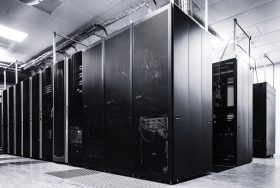How OpenAI Crisis Could Benefit Microsoft

The high drama following the firing of OpenAI’s CEO and co-founder Sam Altman kept us glued to the tech media this weekend. And the upshot – that Microsoft (Nasdaq: MSFT) has hired Altman and other former OpenAI-ers to head up a new AI division, ushers in yet more questions and speculation.
Many of the questions swirl around Microsoft’s role in generative AI. Can the hiring of Altman and former OpenAI president Greg Brockman, along with other key OpenAI team members, strengthen Microsoft’s position with OpenAI as well as in the AI market in general?
As far as OpenAI goes, Microsoft appears to have wrested control from what was undoubtedly a ham-fisted and disastrous mishandling of a conflict between OpenAI’s small, nonprofit-oriented four-person board and its commercial efforts headed by Altman. As of now, newly hired interim CEO Emmett Shear has vowed to open an investigation into Altman’s firing, and the apparent board ringleader, OpenAI cofounder and chief scientist Ilya Sutskever, posted a 180-turnaround on X: “I deeply regret my participation in the board's actions. I never intended to harm OpenAI. I love everything we've built together and I will do everything I can to reunite the company.” Altman reposted this with three heart emojis.
Meanwhile, Microsoft has allegedly offered positions in its new AI division to over 500 of OpenAI’s reported 770 employees who threatened to quit in a letter Monday morning unless Altman is reinstated and the board dissolved. Astoundingly, Ilya Sutskever signed that letter.
How sweet would a mass exodus be for Microsoft, who would have in effect acquired the guts of OpenAI without having to buy it outright.
Microsoft’s Terms of OpenAI Endearment
With Altman in its camp and OpenAI in crisis, it’s Microsoft that’s holding the cards. Microsoft has reportedly invested $13 billion in the startup, which it plans to claw back by taking 75% of OpenAI profits until the investment’s paid back. After that, it will hold a 49% stake in OpenAI. And Microsoft already has exclusive hold on the platform OpenAI uses to process its models (Azure), as well as rights to use and resell OpenAI’s products.
On top of all this, it’s probably too late for OpenAI to hire back Altman and Brockman, who undoubtedly have signed commitments to Microsoft. At the very least, the remaining employees will have to negotiate their trade to Redmond or stay on at OpenAI amid a leadership and culture struggle that could deeply affect OpenAI’s market position.
Speaking of which, Microsoft could be both helped and hurt by the OpenAI crisis. As The Information has pointed out, Google and Meta, whose AI models compete closely against those of OpenAI, could succeed in wooing away enterprise customers who lose faith in OpenAI’s future ability to support its products.
Microsoft Holds the Enterprise Cards
But Microsoft’s key strength in all this could prove to be its enterprise traction. Even though other startups, such as Cohere and Anthropic, have been building credibility with enterprise customers, Microsoft’s ability to sell OpenAI technology along with its own products has made it more attractive to enterprise buyers.
Microsoft also has a strong position with Azure, which according to some users, is a stronger enterprise platform than rival AWS. Of course, Azure has its share of complaints, but according to Futuriom research, it’s taking a lead in another key area – hybrid cloud.
Another plus is Microsoft’s deal with NVIDIA, which puts it in a position to garner key components from the market leader in accelerated computing, even as shortages of those components threaten progress for other companies. And while AWS and Google have their own chips, those are still ramping.
Futuriom Take: With OpenAI in crisis, Microsoft stands to gain an enormous share of its talent, not just weakening the startup’s technological position but threatening its ability to foster a coherent culture.





















